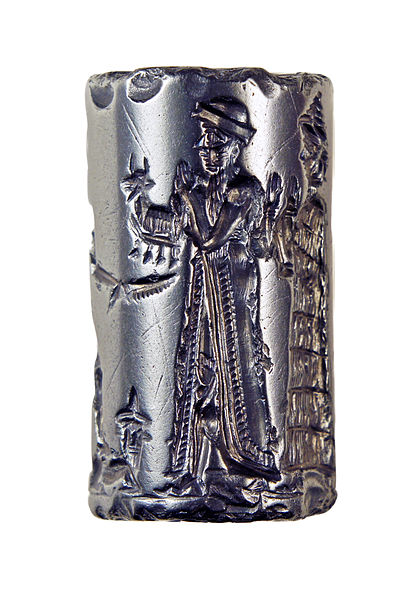16 Dec. Habakkuk asks why the cruel Babylonians succeed
[Habakkuk complains:]
“This is the message Habakkuk the prophet received: LORD, how long must I ask for help and you ignore me? I cry out to you about violence, but you do not save us!”
“Why do you make me see wrong things and make me look at trouble? People are destroying things and hurting others in front of me; they are arguing and fighting. So the teachings are weak, and justice never comes. Evil people gain while good people lose; the judges no longer make fair decisions."
[The LORD answers:]
“Look at the nations! Watch them and be amazed and shocked. I will do something in your lifetime that you won’t believe even when you are told about it. I will use the Babylonians, those cruel and wild people who march across the earth and take lands that don’t belong to them.’”
“’They scare and frighten people. They do what they want to do and are good only to themselves. Their horses are faster than leopards and quicker than wolves at sunset. Their horse soldiers attack quickly; they come from places far away. They attack quickly, like an eagle swooping down for food…’”
“’They laugh at kings and make fun of rulers. They laugh at all the fortified cities and build mounds of earth to the top of the walls to capture them. Then they leave like the wind and move on. They are guilty of worshipping their own strength.’”
[Habakkuk complains again:]
“LORD, you live for ever, my God, my holy God. We will not die. LORD, you have chosen the Babylonians to punish people; our Rock, you picked them to punish.”
“Your eyes are too good to look at evil; you cannot stand to see those who do wrong. So how can you put up with those evil people? How can you be quiet when the wicked swallow up people who are better than they are?”
(Habakkuk 1:1-13)

The Book of Habakkuk was written before the conquest of Jerusalem by the Babylonians in 587BC. His message was a dialogue between himself and God. Habakkuk asks why God appears to allow the cruel and bloodthirsty Babylonians to succeed.
In today’s passage, Habakkuk complains to God about the injustices surrounding him: “Evil people gain while good people lose; the judges no longer make fair decisions” (Habakkuk 1:4)
The LORD answers, “I will do something in your lifetime that you won't believe even when you are told about it.” (Habakkuk 1:5)
Habakkuk complains to God again. “LORD, you have chosen the Babylonians to punish people... Your eyes are too good to look at evil; you cannot stand to see those who do wrong. So how can you put up with those evil people? … How can you be quiet when the wicked swallow up people who are better than they are?” (Habakkuk 1:12-13)
In the following chapter, the LORD replies: “The evil nation [Babylon] is very proud of itself; it is not living as it should. But those who are right with God will live by trusting in him.” (Habakkuk 2:4)
God assures Habakkuk that, although they appear to be succeeding at the present time, the Babylonians will be punished in the future for their wickedness.
Habakkuk then rails against the Babylonians again: “How terrible it will be for the nation that becomes rich by doing wrong... that kills people to build a city, that wrongs others just to start a town. The LORD All-powerful will send fire to destroy what those people have built… Then, just as water covers the sea, people everywhere will know the LORD's glory.” (Habakkuk 2:12-14)
In Chapter 3, Habakkuk prays, “LORD, I have heard the news about you; I am amazed at what you have done. Lord, do great things once again in our time… But I will wait patiently for the day of disaster that will come to the people who attack us.” (Habakkuk 3:2,16)
Habakkuk concludes, "There may be no olives growing and no food growing in the fields. There may be no sheep in the pens and no cattle in the barns. But I will still be glad in the LORD; I will rejoice in God my Saviour." (Habakkuk 3:17-18)
The photo (from the Hjaltland Collection) shows a Babylonian cylinder seal depicting the king making an animal offering to the Sun god Shamash.
You can read more about Habakkuk @ The Bible Journey | Introduction to the Book of Habakkuk
